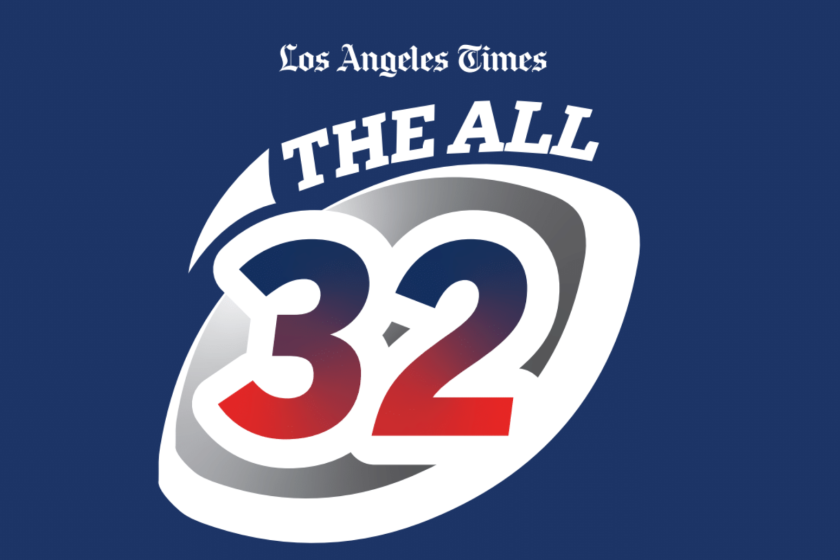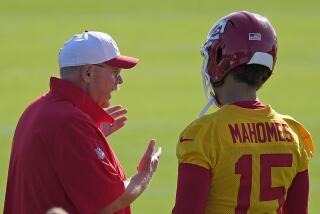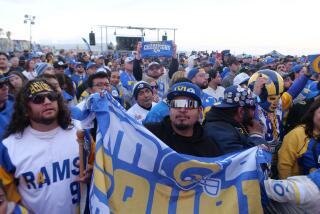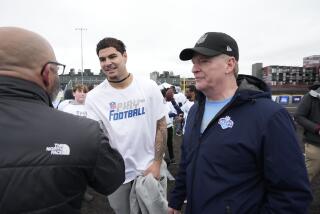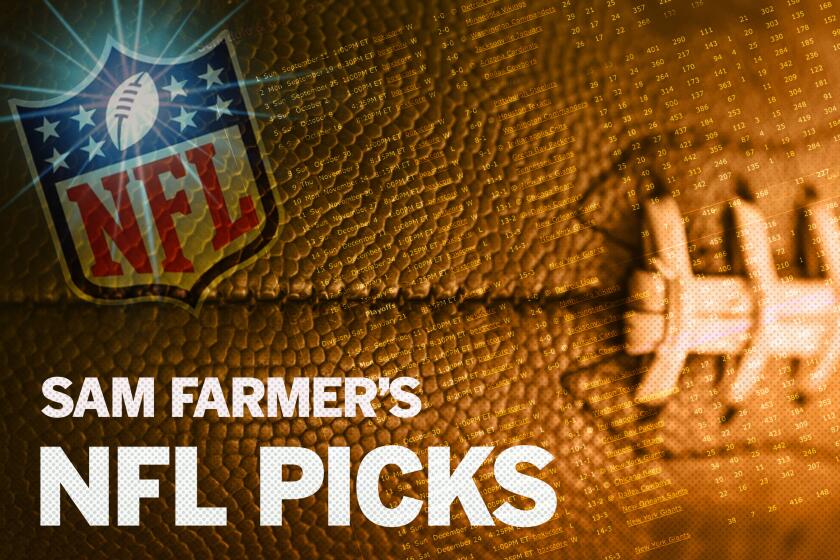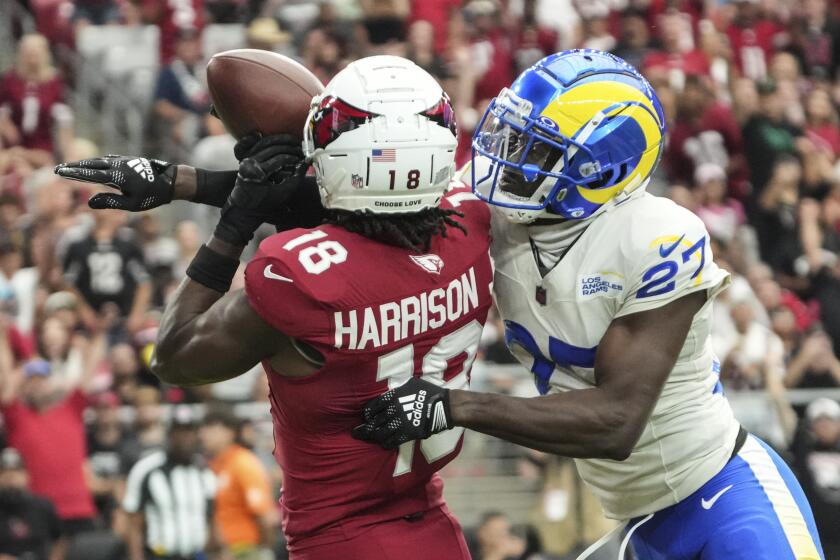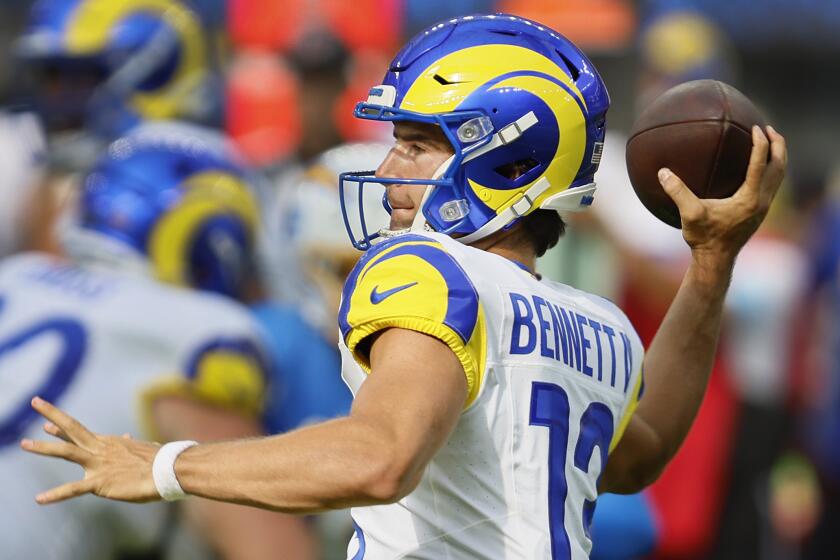NFL forced to get very technical for upcoming virtual draft
What once was “Are you ready for some football?” has become, “Can you hear me now?”
As part of its unprecedented virtual draft production amid the COVID-19 pandemic, the NFL has sent “tech kits” to 58 prospects around the country. Each kit features various ring lights, tripods and microphones, along with two iPhones, allowing those future pros to turn their homes into makeshift TV studios.
If this draft were a wheel, NFL Commissioner Roger Goodell would be the hub — broadcasting from the basement of his New York home — with nearly 200 spokes fanning out to the 32 teams, those 58 prospects, and a collection of current and former players. Those feeds will be collected by video call centers and then will be sent in batches to ESPN.
“We’re doing it live,” said Michelle McKenna, the NFL’s chief information officer. “It’s not like we get to record it, and edit it, and make sure the sound and lighting is perfect. We’re going straight to live.
“It’s exciting, and very nerve-racking as well.”
Despite other sports leagues shutting down in the crisis, the NFL decided to stick to its original dates for the three-day draft, April 23-25, moving the event from Las Vegas to dozens of remote locations, some with skeleton production staffs adhering to the rules of social distancing such as no more than 10 people in a room and everyone at least six feet apart.
Ready for a different kind of NFL mock draft? Football experts join Times NFL writer Sam Farmer to predict the first round of the 2020 draft.
The seven rounds of the draft will be presented across ABC, ESPN, and NFL Network, and will double as a so-called Draft-A-Thon, a fundraiser benefiting six charities battling the spread of COVID-19. Whereas ESPN and NFL Network will combine to offer a single broadcast across both networks, ABC will present a distinct primetime telecast for rounds 1-3 — on Thursday and Friday — then simulcasting rounds 4-7 with the other two networks.
“It’s important that we have an idea of what we’re trying to accomplish,” said Mark Quenzel, NFL Network’s senior vice president of programming and production. “Clearly, it’s about drafting players. But even more clearly, it’s about setting the tone that we understand that there’s something much larger than us going on in the world.”
For the teams, with the personnel staffs and coaches operating from their homes because club facilities are closed, this draft presents new challenges. There will be no actual draft “war rooms,” only virtual ones.
In a recent memo to the 32 teams, Goodell wrote that clubs have been advised to “prepare to conduct the 2020 Draft entirely outside of their facilities and in a fully virtual format, with club personnel in separate locations and able to communicate with one another and Draft headquarters by phone or internet. We have reviewed this matter in the past few days with both the Competition Committee and CEC [NFL Management Council Executive Commmitee], and this will confirm that Clubs will conduct their Draft operations remotely, with club personnel separately located in their homes.”
Jeff Graves, who manages the Rams’ information technology department, is preparing for his fourth draft with the team.
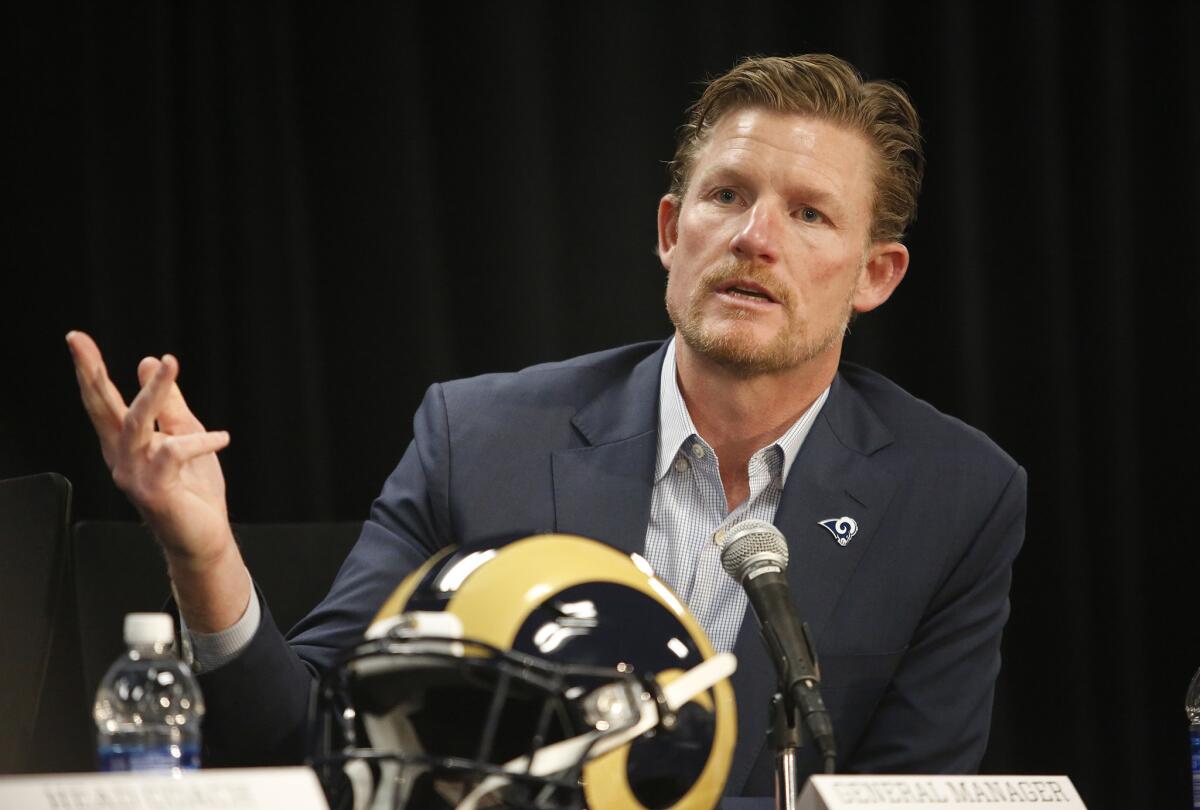
The past three years, Graves annually reconfigured a room at the team’s Thousand Oaks practice facility so that coach Sean McVay, general manager Les Snead, vice-president Tony Pastoors and chief operating officer Kevin Demoff had “all the comforts of their offices” for the three-day draft. Extra computers, docking stations, monitors and generators are kept nearby as backups.
This year, Graves is charged with creating similar stations in the homes of McVay, Snead, Pastoors and Demoff.
Snead said recently that making sure each home “is locked and loaded from an IT standpoint” was a priority. “Interestingly, in today’s time I think we’re probably finding the No. 1 obstacle is finding somebody who has an actual phone line, a land line,” Snead said.
But the challenge goes beyond that.
Technicians must create “redundancy every step of the way” to ensure systems have backup, Graves said. That includes setting up an additional internet service provider.
McVay, Snead, Pastoors and Demoff will be on a web meeting throughout the draft. There also will be second meeting for coaches, scouts, medical staff and doctors. And a third web meeting with the NFL. They will also have phones to communicate with other teams regarding trades.
The Times examines the top prospects ahead of the 2020 NFL draft, to be held April 23-25.
“We’re going to make sure whatever they’re comfortable using is set up and running — as long as we have all the security in place,” Graves said. “Because that’s my top concern: security.”
The Rams and other teams are expected to use multifactor authentication and password protection among other security measures. The NFL’s IT community typically is open to helping other teams solve problems. But the first virtual draft has necessitated a more insulated process.
The Chargers, who pick sixth overall, declined to provide their IT expert for this story.
On draft day, the league has allowed for one IT person to be at the home of each stakeholder. Those workers will practice social distancing and wear masks and gloves.
That is the new reality for a virtual draft.
Staff writer Jeff Miller contributed to this report.
More to Read
Go beyond the scoreboard
Get the latest on L.A.'s teams in the daily Sports Report newsletter.
You may occasionally receive promotional content from the Los Angeles Times.


